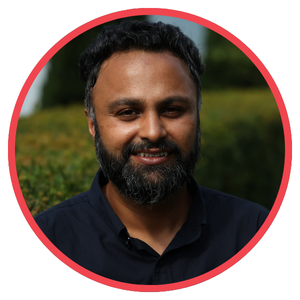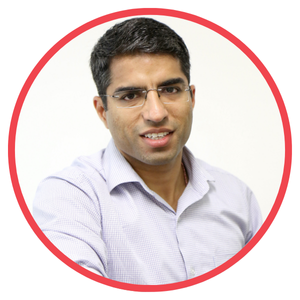Peyush Bansal, Amit Chaudhary
Lenskart
Founded in 2010, Lenskart is a leading eyewear retailer valued at $5 billion. The company is dedicated to transforming vision care by providing quality glasses to the 2.5 billion people globally, including 500 million in India, who need vision correction but lack access to affordable solutions.
With a robust presence in the eyewear retail industry, which is valued between ₹15,000-20,000 crore, Lenskart operates over 2,000 stores in India and 500 additional locations across Southeast Asia. The company has also made strategic expansions, including the acquisition of Japan’s Owndays in 2022 and a $4 million investment in Paris-based Le Petit Lunetier through its subsidiary, Neso Brands.
Lenskart has raised nearly $2 billion in funding, including significant secondary share sales, with recent investments from Temasek and Fidelity amounting to $200 million. This growth reflects Lenskart’s commitment to delivering innovative vision solutions and its strong market position.
Aniket Doegar
Haqdarshak
Haqdarshak is a social enterprise that exemplifies the ‘double bottomline’ model by combining profit with public good. The startup has been recognized for its efforts in integrating more individuals into government welfare schemes through a sustainable business model.
As of now, Haqdarshak has positively impacted the lives of seven million Indians, focusing on blue-collar workers, farmers, and micro businesses. The company collaborates with 150 corporations, family offices, and non-governmental organizations to expand its reach. Moving forward, Haqdarshak aims to enhance its services by piloting a RuPay card to provide organized access to financial services for its beneficiaries.
Rimjhim Agrawal, Laina Emmanuel
BrainSightAI
Founded in 2020 during the height of the pandemic, BrainSightAI faced significant challenges in convincing hospitals to test its software and demonstrating its potential benefits to leading neurologists. The startup aimed to apply brain research to practical use, and its recognition by The Economic Times reflects how its vision has evolved and expanded beyond initial expectations.
Now, with a clinical license secured earlier this year, BrainSight AI is making strides in the healthcare sector. The Bangalore-based startup is negotiating commercial contracts with nine major hospital chains and is in discussions with two dozen more. Additionally, the company is exploring opportunities beyond India, with interest from hospitals in countries such as Nepal and Africa. While facing global competition, particularly from an Australian firm in a similar space, BrainSight AI continues to advance its mission of revolutionizing brain health diagnostics and treatment.
Mukul Arora
Elevation Capital
Mukul Arora, an alumnus of IIM-Lucknow, has had a distinguished 14-year career at Elevation Capital, where he has advanced from associate to co-managing partner. During his tenure, Arora has played a key role in funding some of India’s most valuable consumer internet startups, including Swiggy, FirstCry, Unacademy, and Meesho. His strategic investments have led to significant exits, including secondary sales of shares in Swiggy and Unacademy, as well as witnessing Indiamart’s public listing. Elevation Capital also exited FirstCry, which went public in August 2021. Arora’s career reflects the remarkable evolution of the Indian startup ecosystem and highlights his contributions to its growth and success.
Hardika Shah
Kinara Capital
Before founding Kinara Capital, Shah built her career in management consulting, having worked at Accenture for over two decades, and completed a joint executive MBA programme from Columbia Business School and Haas School of Business, University of California, Berkeley.
Shah founded Kinara Capital, a non-banking financial company, in 2011 to drive financial inclusion for small businesses and emerged as the jury favourite because of her ambition to solve a significant problem in the lending space. Since inception, Kinara has served more than 82,000 MSMEs in sectors like manufacturing, construction and building materials.
Tarun Gupta, Varun Gupta
Boult
Boult, a wearables maker, has emerged as the second-largest seller of wireless audio devices in India as of the April-June quarter this year. The company achieved significant scale without relying on external funding, standing out in a highly competitive market where most rivals raised substantial capital. During the June quarter, Boult secured a 12.9% market share in the wireless audio segment, just behind market leader Boat, and recorded a 47.1% year-on-year growth in shipments, according to IDC data.
Founded in 2017 by Varun and Tarun Gupta, Boult initially focused on earphones and audio products before expanding into smartwatches, neckbands, and other electronic accessories. Despite cost barriers and tough competition from well-funded players, Boult’s bootstrapped journey, driven by passion and persistence, has allowed it to capture a significant portion of the growing Indian consumer market for wireless audio and wearables.
Ajit Kumar Patel, Khet Singh Rajpurohit
ClaimBuddy
ClaimBuddy is a Gurugram-based startup addressing a critical gap in the health insurance industry by providing a claims processing interface for hospitals and patients, a service typically unavailable in the sector. Competing with companies like ClaimTherapist and BimaGarage, ClaimBuddy has partnered with over 125 hospitals and processed claims worth more than ₹180 crore for around 15,000 patients. Valued at $23 million as of April, the startup is backed by investors including Bharat Innovation Fund, Chiratae Ventures, Rebright Partners, and Titan Capital. The company’s mission is to streamline health insurance processing, making it more efficient and accessible for both patients and healthcare providers.









Comeback Kid
Geetansh Bamania
Rentomojo
In early 2020, Rentomojo faced severe challenges due to the pandemic, with revenue stalling and burn continuing, leaving the company with only a few weeks of cash reserves by November of that year. However, through significant restructuring efforts, including layoffs, renegotiation of supplier contracts, and aggressive recovery of small dues, the company managed to turn its financial situation around. By October 2021, Rentomojo achieved profitability and has maintained this status in every quarter since.
Geetansh Bamania, founder and CEO of Rentomojo, credits this turnaround to a shift in the company’s culture during the pandemic. Competing in the furniture rental market alongside Furlenco, Rentomojo has shown resilience and focus, reporting a 50% year-on-year CAGR, along with exponential growth in profit after tax and Ebitda. Receiving recognition at The Economic Times Startup Awards 2024 serves as a testament to the hard work and perseverance of the entire Rentomojo team, reflecting their commitment to the company’s core ethos: “be brave to be free.”